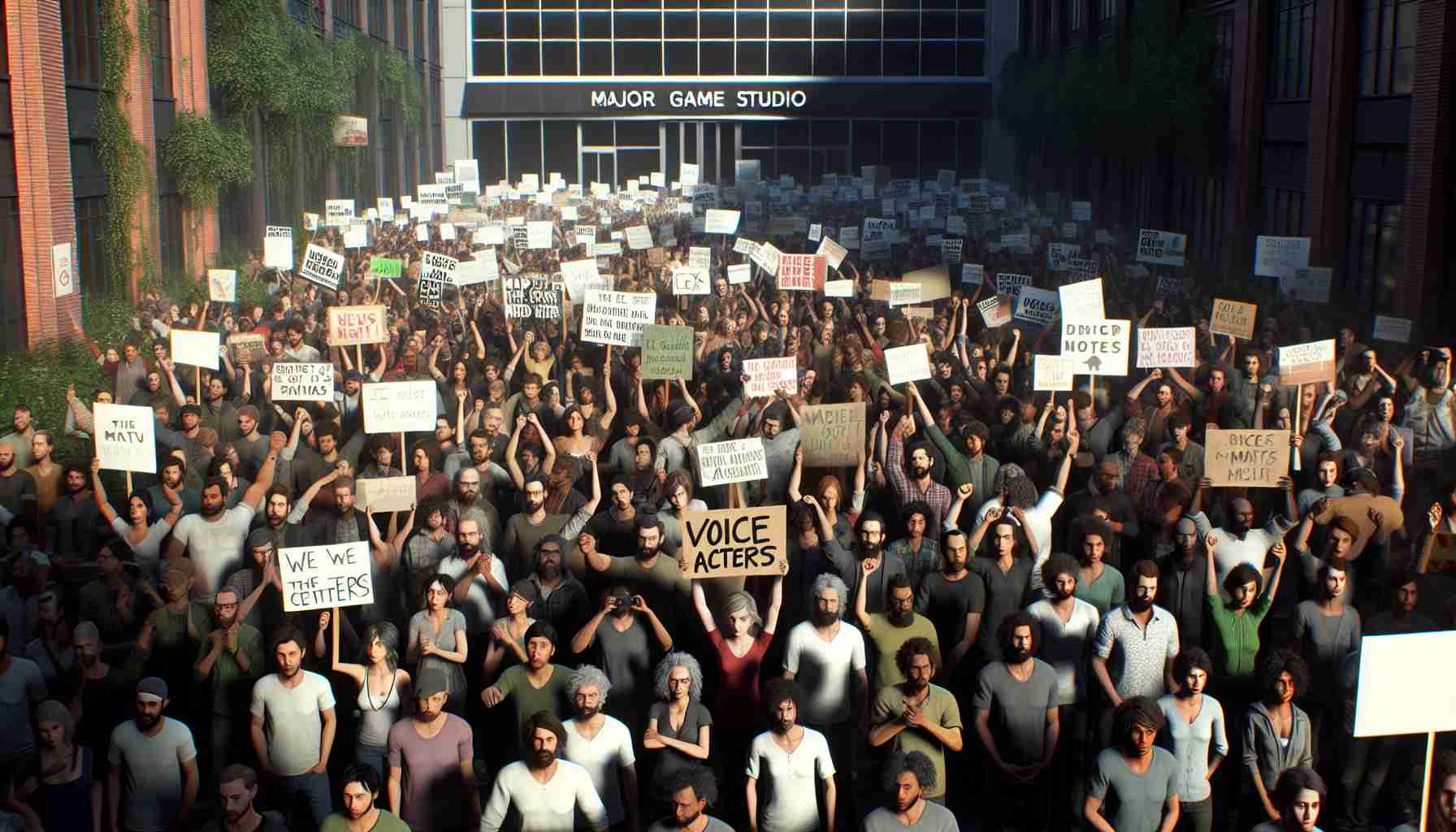In a significant move, the actors’ union representing voice performers has initiated a strike against Formosa Interactive LLC, the studio associated with the acclaimed multiplayer title, “League of Legends.” This decision comes in response to allegations that the company sought to circumvent ongoing labor negotiations by hiring non-union actors for a project tied to the union.
The leadership of SAG-AFTRA claims that shortly after the strike was announced, Formosa attempted to abandon the project but, upon realization that cancellation was impossible, transferred the game to a subsidiary and began recruiting only non-union talent. This prompted the union’s interactive negotiating committee to unanimously decide to file an unfair labor practice charge.
Formosa’s involvement with “League of Legends” has drawn attention, especially as the union accuses the studio of undermining workers’ rights to unionize and of engaging in what they describe as serious violations of labor law principles.
While Formosa has yet to respond publicly, the game’s developer, Riot Games, states that they have consistently required the studio to work with union actors and have not encouraged any cancellation of game projects.
SAG-AFTRA leaders have expressed concerns over the company’s refusal to adhere to fair agreements regarding the use of artificial intelligence, a sticking point in ongoing negotiations. They emphasized that this current strike reaffirms their commitment to protect performers’ rights.
Tips and Insights on the Actors Union Strikes Against Major Game Studios
The recent strike initiated by the actors’ union representing voice performers highlights significant issues within the gaming industry and labor rights. Here are some valuable tips and interesting facts that readers can apply to life, work, and school, especially in contexts related to unions, negotiations, and advocacy.
1. Understand the Importance of Unions:
Unions play a crucial role in advocating for workers’ rights across various industries. They help ensure fair wages, safe working conditions, and equitable treatment. Being informed about union activities can help you understand your rights at work and the broader landscape of labor relations.
2. Stay Informed About Labor Rights:
Familiarize yourself with labor laws and workers’ rights in your region. This knowledge empowers you to advocate for yourself and others. Knowledge of your rights can also prepare you for any negotiations related to your employment, whether in games, entertainment, or any field.
3. The Role of Technology in Workplaces:
With ongoing discussions about the impact of artificial intelligence (AI) on jobs, it’s essential to consider how technology interacts with your work life. Understanding both the potential advantages and ethical considerations of AI can help you navigate your industry more effectively.
4. Effective Communication Skills:
The ongoing negotiations between union representatives and game studios underscore the importance of clear communication. Whether you’re working in a collaborative project at school or negotiating a salary, honing your communication skills can lead to more successful interactions. Practice active listening and clear expression of your thoughts.
5. Support Fair Practices:
As consumers and employees, supporting companies that adhere to fair labor practices not only promotes a positive work environment but also enhances the quality and sustainability of the products we use. Consider researching the studios and companies you engage with to understand their labor practices.
Interesting Fact: Did you know that the video game industry is one of the largest entertainment sectors globally? According to recent statistics, it is expected to reach a market value of over $200 billion in the next few years. This makes understanding labor relations in this industry particularly crucial as more people enter this workforce.
6. Advocacy in Learning Environments:
In schools or universities, be proactive in discussing and advocating for fair treatment, whether regarding grades, responsibilities, or workloads. Forming student unions or advocacy groups can facilitate discussions about student rights and fair treatment by the institution.
7. Building Solidarity:
Whether at work or in your studies, foster a sense of solidarity with your peers. Collaborating and supporting one another can help create a more equitable and respectful environment. Shared understanding of rights and challenges can be the catalyst for collective action, similar to union activities.
For more on labor rights and union activities, you can visit SAG-AFTRA. Stay informed, advocate for your rights, and apply these insights in your interactions at work, school, and beyond to promote a fair and just environment.






















